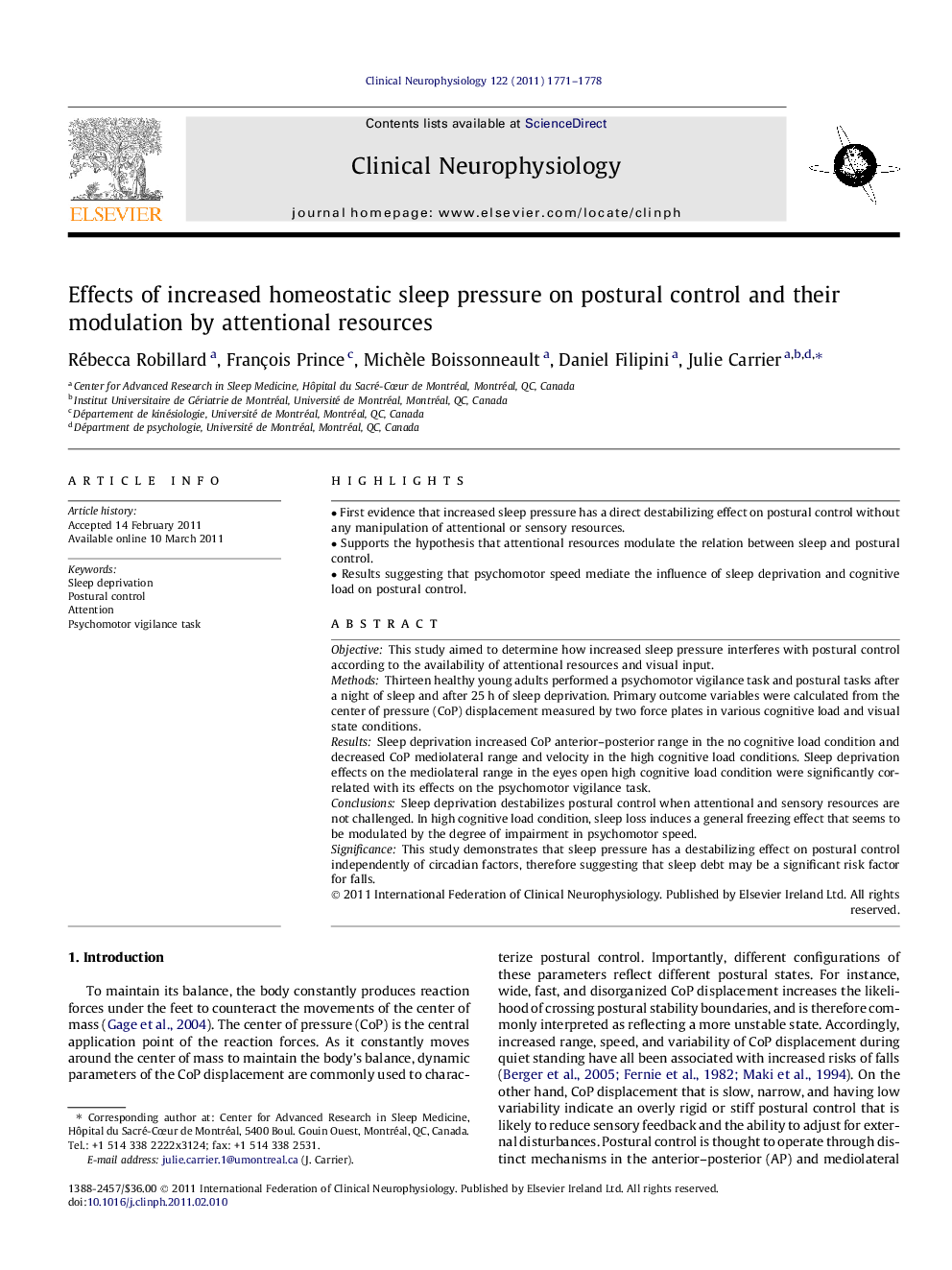| Article ID | Journal | Published Year | Pages | File Type |
|---|---|---|---|---|
| 3045784 | Clinical Neurophysiology | 2011 | 8 Pages |
ObjectiveThis study aimed to determine how increased sleep pressure interferes with postural control according to the availability of attentional resources and visual input.MethodsThirteen healthy young adults performed a psychomotor vigilance task and postural tasks after a night of sleep and after 25 h of sleep deprivation. Primary outcome variables were calculated from the center of pressure (CoP) displacement measured by two force plates in various cognitive load and visual state conditions.ResultsSleep deprivation increased CoP anterior–posterior range in the no cognitive load condition and decreased CoP mediolateral range and velocity in the high cognitive load conditions. Sleep deprivation effects on the mediolateral range in the eyes open high cognitive load condition were significantly correlated with its effects on the psychomotor vigilance task.ConclusionsSleep deprivation destabilizes postural control when attentional and sensory resources are not challenged. In high cognitive load condition, sleep loss induces a general freezing effect that seems to be modulated by the degree of impairment in psychomotor speed.SignificanceThis study demonstrates that sleep pressure has a destabilizing effect on postural control independently of circadian factors, therefore suggesting that sleep debt may be a significant risk factor for falls.
► First evidence that increased sleep pressure has a direct destabilizing effect on postural control without any manipulation of attentional or sensory resources. ► Supports the hypothesis that attentional resources modulate the relation between sleep and postural control. ► Results suggesting that psychomotor speed mediate the influence of sleep deprivation and cognitive load on postural control.
